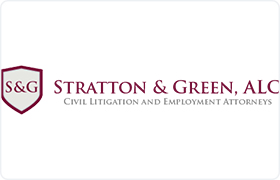Blue Jay Workout Lawyer, California
Sponsored Law Firm
-
 x
x

Click For More Info:
-
Stratton & Green, ALC
3703 Camino Del Rio S Suite 100B San Diego, CA 92108» view mapBankruptcy & Debt Law Exceptional Advocates.
Stratton & Green is proud to serve as a modern advocate, in that it takes an innovative approach by not only litigating cases through trial but whenever possible.
800-803-3091
William James Campbell
✓ VERIFIEDBankruptcy & Debt, Credit & Debt, Consumer Rights, Workout, Collection
William Campbell began his working career by serving in the United States Army as an infantryman in the 101st Airborne Division. After serving and ho... (more)
FREE CONSULTATION
CONTACT Sabrina Green San Diego, CA
Sabrina Green San Diego, CA Practice AreasExpertise
Practice AreasExpertise

